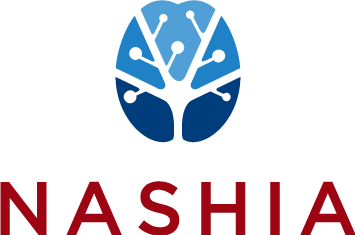Upcoming & Archived Trainings

Infonar: Leading Practices Academy on Behavioral Health
Join us for a free infonar to learn more about the NASHIA Leading Practices Academy (LPA). Launched for the first time in 2022, the LPA on Behavioral Health and Brain Injury focuses on systems for individuals with co-occurring brain injury and behavioral health needs. This LPA is designed with the goal to equip states and programs with the tools and technical assistance necessary to develop the infrastructure to ensure a way to better address behavioral health and brain injury.

Vulnerable Populations Series, Part 1 - Building Partnerships: State Brain Injury Programs and Overdose Fatality Reviews
A nationally recognized model, overdose fatality review (OFR) is being used by a growing number of communities to strengthen their community-based responses to the opioid epidemic by generating recommendations to address system, agency, population, research, and policy needs. OFRs help multi-disciplinary collaborations understand their overdose trends, identify missed opportunities for prevention and intervention to implement innovative, community-specific overdose prevention strategies.

Learning Session: Leveraging Disability Innovation Funding for Brain Injury Activities
The Department of Education recently released new funding under the Disability Innovation Fund (DIF) specifically aimed at supporting innovative solutions for transitioning youth and adults with disabilities to competitive integrated employment (CIE). This learning session is ideal for states at all stages of the application process, from exploring possibilities to actively developing proposals.
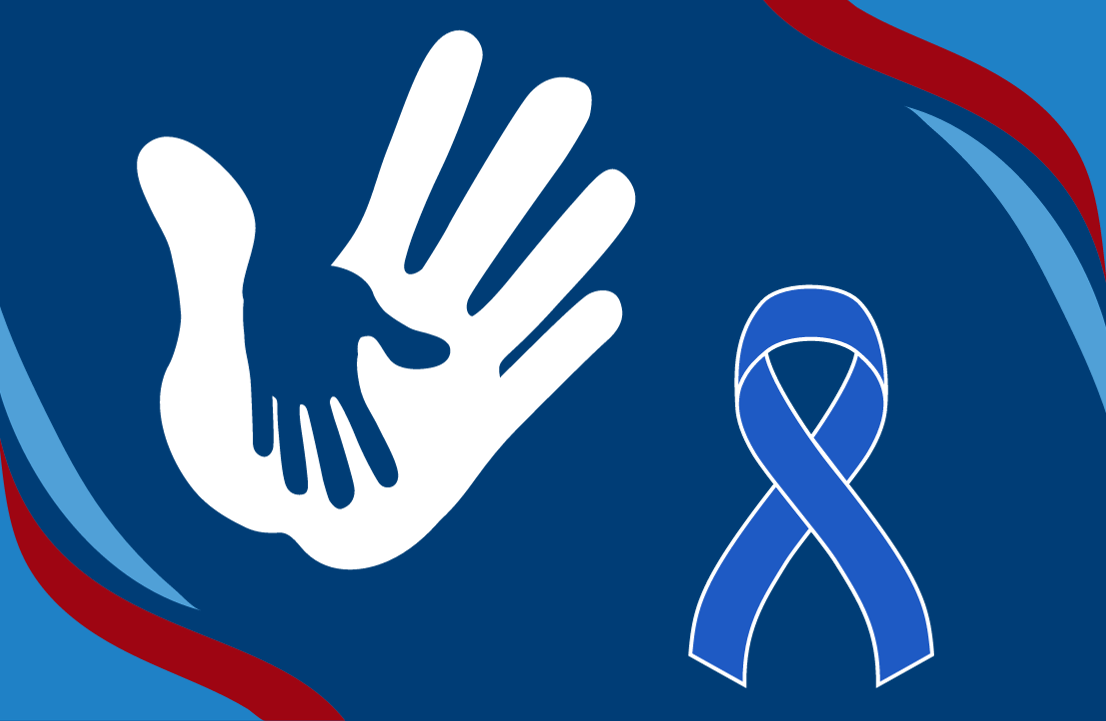
Vulnerable Populations Series, Part 2: Human Trafficking and Brain Injury Implications
Human trafficking is the second leading crime in the world. There are over 1.3 million missing and runaway children in the U.S. and if a child is not recovered within the first 48 hours, the likelihood is high that they will be trafficked. Incidence and prevalence of brain injury within this extremely vulnerable population is high due to intentional violence, substance use and suicidal attempts. Join us for an overview of this incredibly challenging topic.

Cognitive Impairment in Substance Use Disorder Treatment: Neurologic Informed Care
The 4th Edition of the ASAM Criteria for adults was released in December 2023 and for the first time includes a chapter addressing treatment for individuals with cognitive impairment. John D. Corrigan, PhD, ABPP, was a member of the writing group for this chapter. In this webinar he will introduce the new ASAM expectations for the treatment of persons with cognitive impairment, including "Neurologic Informed Care” as described in the new criteria. Implications for the identification of people in treatment who have a history of brain injury, as well as the use of accommodations to make treatment more accessible, will be discussed.

Vulnerable Populations Series, Part 3: Beyond the Fight: UFC, MMA, and Brain Injury
In the world of contact sports, the physical toll on athletes is undeniable. Players with a history of previous concussions are more likely to have future concussions, and previous concussions may be associated with slower recovery of neurological function. MMA fighters who experience violent hits to the head suffer from TBIs in approximately one-third of UFC fights (Safinia C, Bershad EM, Clark HB, SantaCruz K, Alakbarova N, Suarez JI, Divani AA, Oct 2016). Previously published research on head trauma exposure in MMA strongly indicates high risk of injury among male and female fighters. During this webinar we will delve into an introduction to MMA/UFC history and the connection to brain injury.

Basic Principles of Data Visualization: Effective Messaging and Best Practices
The Data Visualization & Communication workshop will provide the foundation to data visualization best practices and its applications. Attendees will learn the key principles and best practices behind the science of communication and visualizing data. This will include considerations around applying these principles and best practices to charts that effectively communicate your data. We will also cover an overview of best practices in presentation considerations including a process of forming key findings through data storytelling.
This workshop will also explore strategies for developing dissemination plans tailored to various stakeholders and audiences. This includes outlining steps and considerations for creating dissemination plans to identify dissemination product types suited to different purposes and/or audiences.
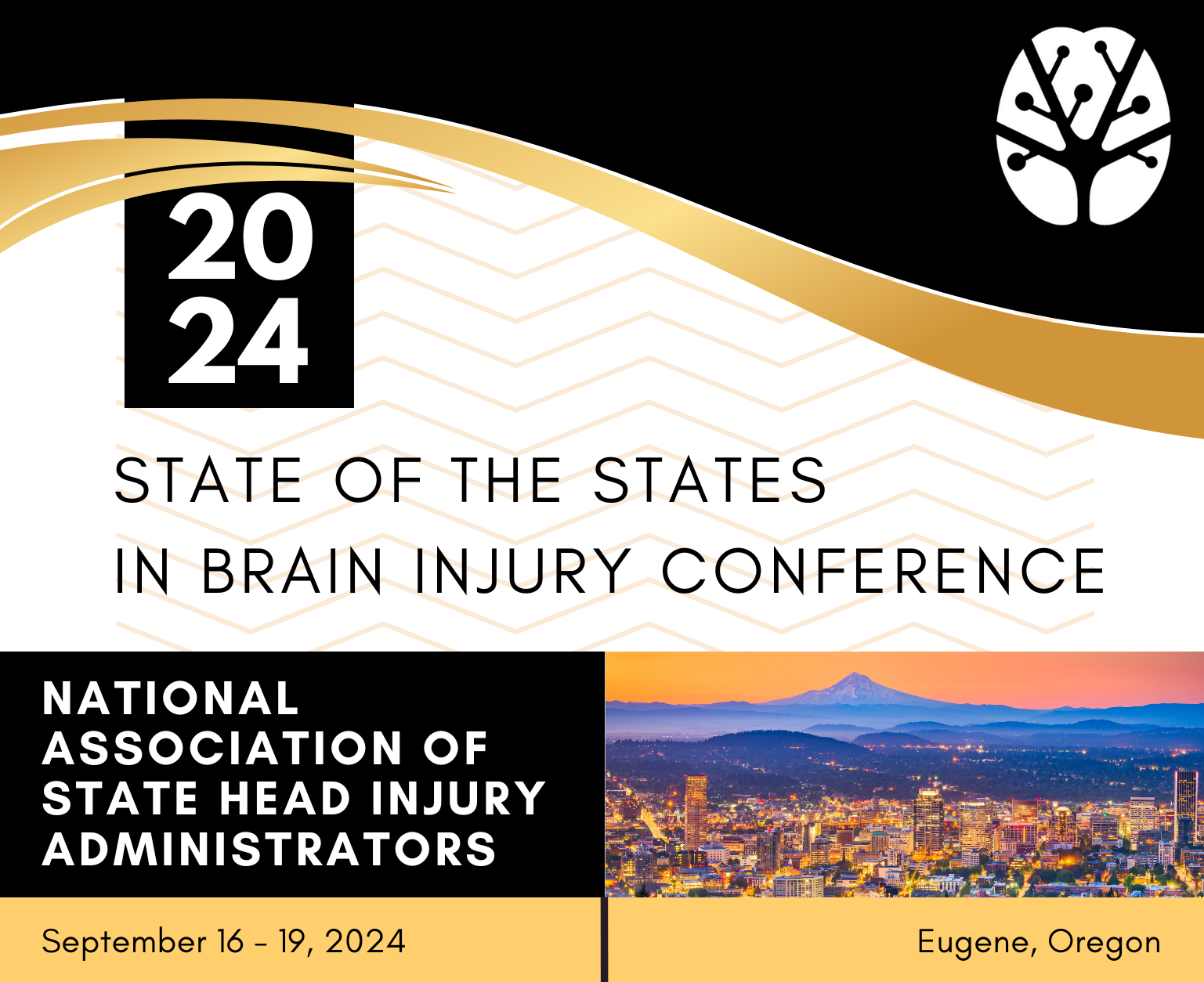
State of the States in Brain Injury Conference
2024's SOS will be the 35th consecutive year that NASHIA has hosted the conference.
SOS continues to bring state leaders together, alongside brain injury advocacy organizations, partners, researchers, and providers.
This year’s conference will highlight work in the Criminal Legal System (CLS) as a content track, as well as bring content applicable to the whole brain injury community.
The pre-conference will focus on Medicaid Home and Community Based Services.

Ethical Practice as a Framework for Professional Development & Advancing Technology
These interactive sessions will provide an overview of ethical practice and decision making as a foundation to further explore moral distress and technology with an emphasis on artificial intelligence. Session 1 will explore the similarities and differences between morals, ethics, and law. In addition, the concept of moral distress will be introduced and its impact on burnout and moral resilience. The second session will explore the ethical landscape in the ever-evolving world of technology, with a special focus on generative artificial intelligence. We will discuss strategies for maintaining an ethical perspective in this rapidly changing environment, equipping participants with the tools to navigate the opportunities and challenges that lie ahead.

Federal Funding Avenues for State Brain Injury Programs and Partners
NASHIA’s Public Policy Committee hosted a webinar about new federal funding options beyond traditional grants. The webinar will discuss why it's important to think long-term for sustained support and growth and give practical knowledge and tools to navigate and take advantage of different funding sources for state brain injury programs and partners, ensuring better support for those affected.

Effective Communication Between Providers and Clients
Either as a provider or as a client/participant who has sustained brain injury, have you ever felt like you struggled to successfully communicate in particular settings or scenarios? This session will approach and address this challenge from both sides of the equation. You will walk away with several strategies that can lead to successful communication for both providers and clients. Everyone deserves to be heard, validated, and accommodated, which, when honored, leads to respect, organized care, and mindful decision-making. This session will recognize the incredible successes and challenges of communication and assist with helping everyone maximize interactions together.

Intimate Partner Violence and Brain Injury: A Panel Discussion
Though intimate partner abuse often involves physical blows, research has been slow to consider the prevalence of brain injuries among women seeking services after intimate violence and implications for navigating systems of care. This presentation will provide brief background on research that has emerged over the last several years on mild brain injuries among women victimized by intimate partners. Findings from new Colorado-based research on brain injuries will be shared; there were more than one hundred women seeking services connected to a family justice center after intimate partner abuse. Implications of the new research for screening, case management, and service navigation to support survivors of intimate partner abuse will be considered.
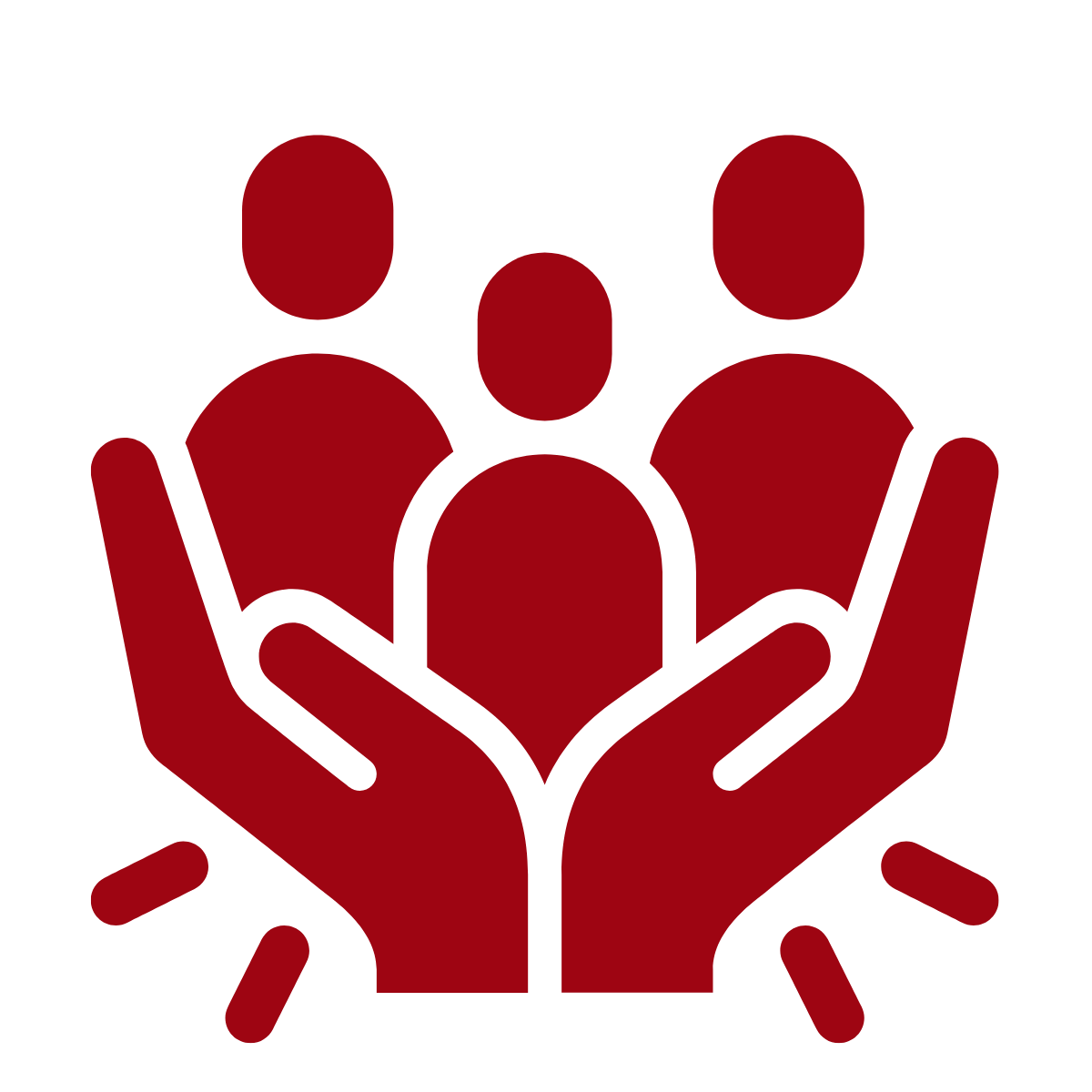
Supported Decision Making and Individuals with Disabilities – Breaking Through
Supported Decision Making (SDM) encourages persons with disabilities to make their own decisions to whatever extent they can, provided that they have the support to do so. Now law in many states, SDM represents a huge breakthrough for people living with disabilities, as it does not take away their rights of self-determination; rather, it allows them to appoint a supported decision maker (in some states, even if they are under guardianship). This paradigm shift brings with it the element of risk if all the components are not addressed for individuals, parents and caregivers. In this webinar, Elville and Associates’ Managing Principal and Lead Attorney Stephen R. Elville, Esq., will explore SDM and the elements of challenges and solutions. This webinar focuses on SDM and alternatives to guardianship and potential guardianship supplements, and how SDM has the potential to affect and change so many lives, including those of family members and other supporters.
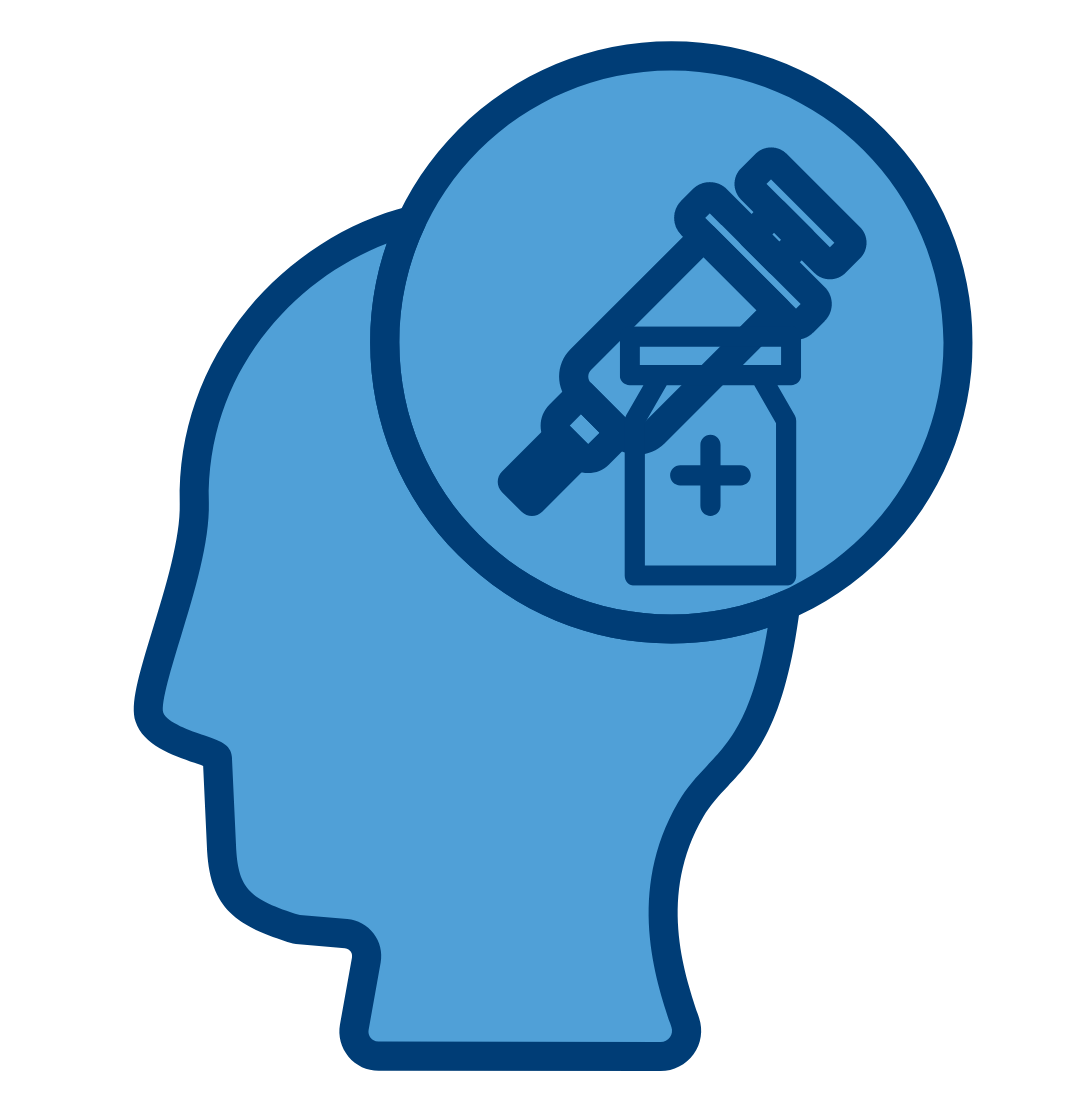
Brain Injury, Overdose and Harm Reduction
Harm Reduction is a set of practices that help people behave safely while also shifting systems and environments to be safer. Harm Reduction recognizes that society, and the systems within, have historically put people who use drugs and/or engage in sexwork in more harm through oppressive policy and stigmatizing culture. - Baltimore Harm Reduction Coalition.
This presentation will provide an overview of how people with brain injury can be supported in terms of reducing risk from overdose, as well as concrete examples on how to apply academic detailing. Successful examples of peer-to-peer modeling will be shared, and a discussion which state and community partners to invite to the table will be conducted.

DETAC Webinar - Fitting the Pieces Together: Assistive Technology Solutions for Brain Injury and Employment
Assistive technology (AT) plays a critical role in employment success for individuals with brain injury. Low and high-tech options and resources are abundant, but it is important to have an AT navigator at the helm to guide best practice and application for these supports. In this webinar, learn how AT programs assess specific sensory, physical, social, emotional, and cognitive challenges. The process for analyzing, determining, and providing support to individuals, employment staff and businesses will be shared. In addition, case examples in which AT was successfully applied, resources and program information will be highlighted.
Join the Disability Employment TA Center for this free webinar.

Using the YSTEP with Children and Youth: A Successful Intervention Model
The Youth Short Term Executive Plus Program (YSTEP) is designed to teach young people how handle their emotions better and how to be more productive in everyday life. YSTEP is an interactive group intervention for emotional dysregulation following brain injury. It was developed by the Centers for Disease Control supported Injury Control Research Center at the Icahn School of Medicine at Mount Sinai, and has been utilized at the El Paso County Juvenile Justice Center since 2012 for youth court ordered into the Challenge Academy, a post-adjudication program offering supportive residential drug and behavioral health treatment.

Post Acute Sequelae of Covid-19 (PASC)- Updates and Practical Management Approaches
All are welcome to hear Dr. Billie Schultz from the Mayo Clinic discuss "Post Acute Sequelae of Covid-19 (PASC)- Updates and Practical Management Approaches". This session is presented by the Iowa Advisory Council on Brain Injuries.
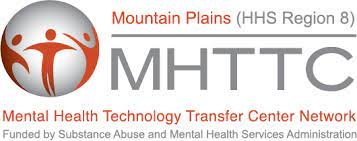
Peer Support Best Practices for Working with Individuals Living with Traumatic Brain Injury: Session 2
Join the Mountain Plains Mental Health Technology Transfer Center (MHTTC) and the National Association of State Head Injury Administrators (NASHIA) for this exciting two-part series on Peer Support best practices for providers and individuals working and living with people who have a Traumatic Brain Injury (TBI).
When experiencing a life-changing event such as a brain injury, peer support can be a key factor in moving through the recovery process. Individuals who have successfully navigated a similar journey can have an incredible impact on others who are struggling. Peer support can expand successful outcomes into the community and help with emotional, social, academic, and vocational success.

Peer Support Best Practices for Working with Individuals Living with Traumatic Brain Injury: Session 1
Join the Mountain Plains Mental Health Technology Transfer Center (MHTTC) and the National Association of State Head Injury Administrators (NASHIA) for this exciting two-part series on Peer Support best practices for providers and individuals working and living with people who have a Traumatic Brain Injury (TBI).
When experiencing a life-changing event such as a brain injury, peer support can be a key factor in moving through the recovery process. Individuals who have successfully navigated a similar journey can have an incredible impact on others who are struggling. Peer support can expand successful outcomes into the community and help with emotional, social, academic, and vocational success.

Leading Groups in Virtual Spaces: Becoming a Better Facilitator
Leading and managing groups in virtual and hybrid settings is our “new normal”. This session will discuss how to organize a session to be the most effective and impactful for you and for your audience. Additionally, the session will explore engagement tools and strategies to get the most from your audience and participants. Participants of Leading Groups in Virtual Spaces will be able to recognize and implement helpful facilitation and engagement strategies in their meetings, trainings and presentations moving forward.

TBI TARC Webinar: Getting and Staying Involved in the Brain Injury Community
Join TBI TARC to learn more about how brain injury survivors can become involved and stay actively engaged in state and national brain injury initiatives. Learn how survivors can collaborate on all aspects of board and committee development, management, and engagement, as well as effective advocacy. The audience for this webinar are survivors that are currently engaged in brain injury initiatives, those who would like to be engaged, brain injury program staff, community brain injury providers, and other stakeholders.

How To Approach, Engage, and Direct Individuals Living With TBI-A Training Series for First Responders, Part 4
This 4-part series is designed for the first responder community including law enforcement, parole, and probation personnel, EMTs, and any other members of the community engaged in emergency and front-line efforts.

Capitol News! Live!
The National Association of State Head Injury Administrators (NASHIA) Public Policy Committee hosted a webinar on Tuesday, June 21, 2022, to update members on the status of federal fiscal year 2023 appropriations; H.R. 2992 (TBI/PTSD Law Enforcement Act); and other legislative and Administrative proposals impacting individuals with brain injury and their families.

How To Approach, Engage, and Direct Individuals Living With TBI-A Training Series for First Responders, Part 3
This 4-part series is designed for the first responder community including law enforcement, parole, and probation personnel, EMTs, and any other members of the community engaged in emergency and front-line efforts.

How To Approach, Engage, and Direct Individuals Living With TBI-A Training Series for First Responders, Part 2
This 4-part series is designed for the first responder community including law enforcement, parole, and probation personnel, EMTs, and any other members of the community engaged in emergency and front-line efforts.

Collaboration Across Systems: Supports for Paralysis and Spinal Cord Injury
Many individuals with spinal cord injury also have concomitant brain injury, and there are also many individuals with brain injury who have sustained varying degrees of paralysis. Join us for an informative webinar on organizations supporting individuals with paralysis and spinal cord injury and learn how to access resources and initiate partnerships between your program, the National Paralysis Resource Center , and the Spinal Cord Injury Model System to collaborate on research and practice.

How To Approach, Engage, and Direct Individuals Living With TBI-A Training Series for First Responders, Part 1
This 4-part series is designed for the first responder community including law enforcement, parole, and probation personnel, EMTs, and any other members of the community engaged in emergency and front-line efforts.

Realizing Employment Success: A Tailored Approach to Serving People with Brain Injuries
Join this partner event from the AoD Disability Employment TA Center’s National Community of Practice and NASHIA.

Tools for Your Trade: Brain Injury and Behavioral Health
Learn about two new customized tools to guide behavioral health and community providers in supporting better outcomes for individuals with brain injury and behavioral health needs. Dr. Carolyn Lemsky, Clinical Director for the Community Head Injury Services of Toronto (CHIRS), will conduct an overview of the tools and how to utilize them in your program:
Traumatic Brain Injury and Substance Use Disorders: Making the Connections
Substance Use and Brain Injury Client Workbook: Second Edition

Collaboration Across Systems: Partnering with University Centers for Excellence for Developmental Disabilities (UCEDD)
The UCEDD system is a nationwide network of independent but interlinked centers, representing an expansive national resource for addressing issues, finding solutions, and advancing research related to the needs of individuals with developmental disabilities and their families. UCEDDs have played key roles in every major disability initiative over the past four decades. Collaboration across and among service systems helps to achieve the best outcomes for people. Learn how collaborating with your UCEDD can enhance your brain injury program.

Employment Accommodations, Innovations and Assistive Technology for TBI
This session will provide an introduction and overview of the Job Accommodations Network, information on the Americans with Disabilities Act (ADA), disclosure of brain injuries in the workplace, the limitations associated with these challenges, and the accommodations that might be needed.

Traumatic Brain Injury & Substance Use Disorder: Implications of Stimulants on TBI
In collaboration with Mid-America Addiction Technology Transfer Center and Mountain Plains Addiction Technology Transfer Center, NASHIA presents Traumatic Brain Injury and SUD: Effective Strategies for Individual Therapy.

Collaboration Across Systems: Making the Most Out of Partnerships
This webinar will focus on why effective collaboration is so important, highlight how shared goals, strong communication, and building capacity fuel effective collaboration, and showcase the successes in NASHIA member states stemming from effective collaboration.

Sexually Speaking: Brain Injury, Development and Behavior, Part 3 Rebuilding Intimacy and Relationships
Sexual function and intimacy between individuals with brain injury and caregivers is important to emotional well-being; these important connections will be discussed. Capacity to relate to others and a focus on addressing sexual function with adults with disabilities across the continuum of care, both inpatient and outpatient will be presented.

Traumatic Brain Injury & Substance Use Disorder: Brain Injury, Addictions and the Importance of Family Involvement
In collaboration with Mid-America Addiction Technology Transfer Center and Mountain Plains Addiction Technology Transfer Center, NASHIA presents Traumatic Brain Injury and SUD: Effective Strategies for Individual Therapy.

Sexually Speaking: Brain Injury, Development and Behavior, Part 2 Addressing Problematic Sexual Behavior
Problematic sexual behavior for individuals with TBI at home or in community living can be a barrier to independence, and justice-involved youth and adults seeking to return to school, work or community living.
This training will provide participants with a basic understanding of the neurological correlates of problematic sexual behavior (PSB) in persons with traumatic and other types of acquired brain injury and neurological conditions. Guidelines for recognition, assessment and management will also be reviewed and discussed.

Sexually Speaking: Brain Injury, Development and Behavior, Part 1 Sexual Development and Disruption
This webinar will focus on neurotypical physical, emotional and cognitive growth, and subsequent issues associated with the occurrence of TBI. Optimal points for education for teens and parents will be discussed as well as best practices for providing culturally competent care to adolescents and best supports for families navigating parenting and sexuality with youth who have experienced TBI.
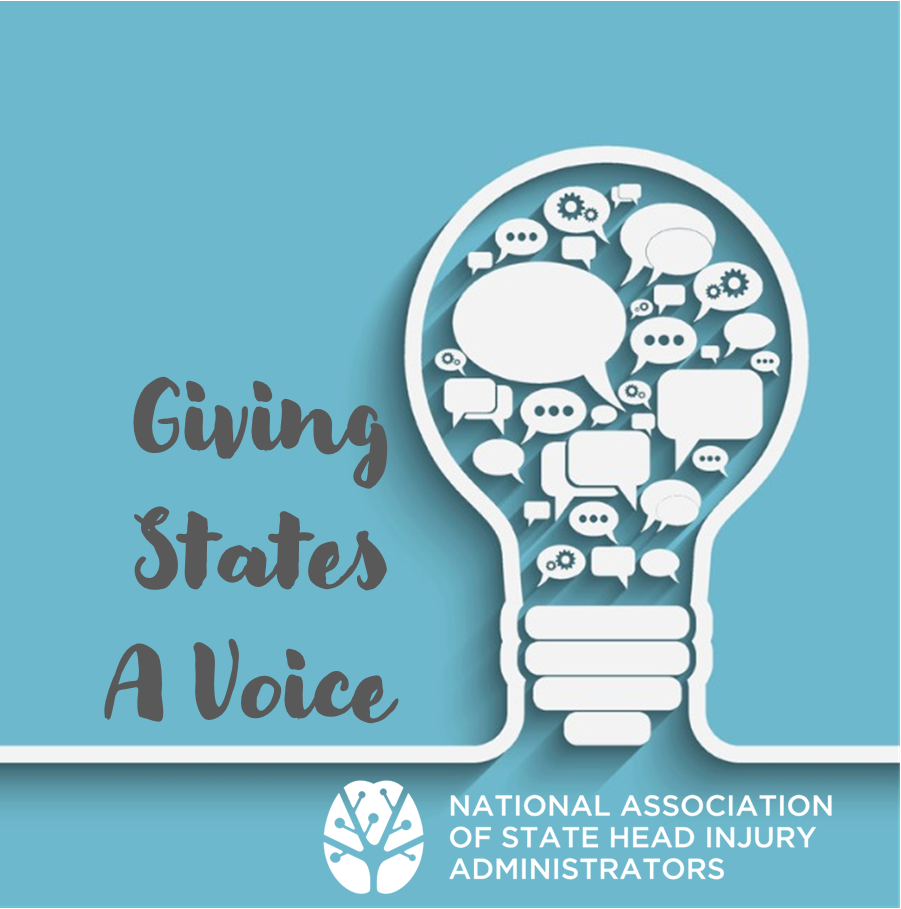
Resource Facilitation: Virtual Approaches for Real Supports in Brain Injury
This podcast will encompass a broad overview of resource facilitation and will then highlight two available therapeutic and management approaches during an interactive, informative session. NASHIA will provide an overview of resource facilitation and its importance in this field. Steve Sutter and Dr. Lance Trexler will introduce promising resource facilitation tools that are making a difference in the lives of individuals with brain injury. Dr. Kajankova will discuss how an emotion regulation intervention can improve affective and cognitive outcomes, which can lead to success in becoming or remaining employed.
